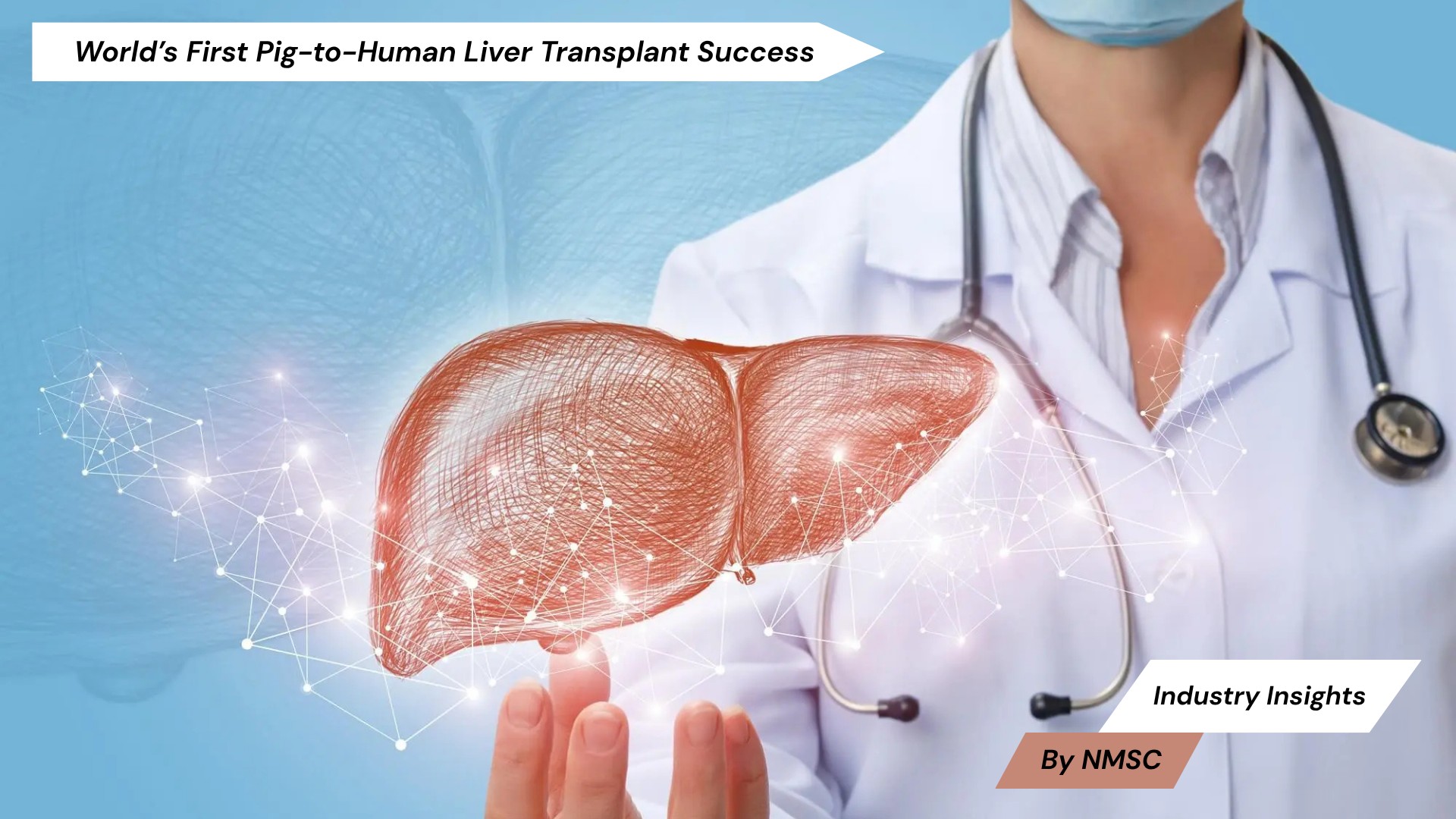Lung Cancer Diagnostics: AI, Screening & Market Trends
Published: 2025-10-10

Lede
Recent developments in lung cancer detection—from innovative screening programs to AI-powered diagnostic technologies—are transforming the lung Cancer Diagnostics Market. Two notable stories underscore this evolution: Korea’s research into novel biomarker-based diagnostics improving early detection, and global efforts to expand screening coverage with greater trust and accessibility. Together, these advances signal not only technical progress but also practical challenges, such as scaling, patient adoption, and integration into healthcare systems, while highlighting a growing commercial premium for early, accurate, and accessible diagnostics.
AI-Powered Lung Cancer Detection and Innovative Screening Approaches
Researchers in South Korea have introduced a biomarker-driven approach to lung cancer diagnostics, leveraging novel molecular signatures for faster, more precise identification of high-risk patients. By combining traditional imaging with liquid biopsies, these tools aim to detect tumors earlier than conventional CT scans, improving survival outcomes. Early studies suggest increased specificity and reduced false positives, allowing clinicians to prioritize interventions and reduce unnecessary invasive procedures.
The integration of artificial intelligence (AI) into lung cancer diagnostics is revolutionizing the field. AI algorithms are being developed to analyze medical imaging data, such as CT scans and chest radiographs, to identify potential malignancies with high accuracy. These advancements enable healthcare providers to detect lung cancer at earlier stages, even before symptoms manifest, leading to more effective treatment options. Furthermore, AI-powered tools are enhancing the efficiency of radiologists by automating the analysis of imaging data, reducing workload, and minimizing human error. This technological progress not only improves diagnostic accuracy but also streamlines the workflow within healthcare facilities.
In a recent competitive bidding process, Lunit was selected as the sole AI biomarker partner for non-small cell lung cancer (NSCLC). Lunit’s collaboration with a leading oncology company like AstraZeneca underscores the strength and innovation of our AI technology,” said Nesmith.
Tagrisso is a targeted treatment for NSCLC, which represents approximately 85% of global lung cancer cases. Currently, around 700,000 patients worldwide are using the drug.
Technology-Driven Lung Cancer Diagnostics: Building Trust and Improving Screening
The Union for International Cancer Control (UICC) has highlighted ongoing global efforts to broaden access to lung cancer screening, with a particular focus on underserved and hard-to-reach populations. Across multiple countries, healthcare organizations and governments are implementing innovative initiatives to overcome historical barriers that have limited participation in early detection programs. These measures include the deployment of AI-supported imaging analysis, which enhances the accuracy and speed of diagnostic evaluations, and mobile screening units that bring critical services directly to communities lacking established healthcare infrastructure. In addition to technological solutions, patient-centered approaches are playing a crucial role in fostering trust and engagement. Programs that prioritize patient education, culturally sensitive communication, and community involvement have proven especially effective in encouraging individuals who were previously hesitant or unaware of the importance of regular lung cancer screening. By combining cutting-edge technology with outreach strategies that address social, cultural, and logistical barriers, these initiatives are significantly improving participation rates, enabling earlier diagnosis, and ultimately contributing to better treatment outcomes and reduced mortality rates in regions where lung cancer has historically gone undetected until advanced stages.
Next Move Strategy Consulting – Market Perspective
Next Move Strategy Consulting interprets these developments as indicators of a maturing lung cancer diagnostics market, where success is increasingly tied to the convergence of technological innovation, patient-centric design, and systemic integration:
-
Integration of AI and Machine Learning: AI-driven imaging analysis and predictive algorithms are poised to improve diagnostic accuracy while reducing radiologist workload, making large-scale screening programs more feasible.
-
Expansion into Emerging Markets: Targeted initiatives in underserved regions can improve early detection rates, which not only saves lives but also establishes long-term market growth.
-
Patient Trust and Engagement: Screening programs that incorporate education and personalized follow-up protocols can significantly boost adoption, a critical factor in realizing the potential of new diagnostic technologies.
-
Operational and Regulatory Readiness: Commercial success will depend on diagnostics that can scale reliably and meet global regulatory standards, particularly for molecular and AI-assisted tools.
-
Sustainability and Cost-Efficiency: Programs that optimize resource use and reduce procedural costs are likely to gain preference among healthcare providers and insurers, influencing long-term adoption.
Key Players and Strategic Moves in the Lung Cancer Diagnostics Market
The lung cancer diagnostics industry is dominated by several leading companies, including Roche Holding AG, Thermo Fisher Scientific Inc., Abbott Laboratories, QIAGEN N.V., Bio-Rad Laboratories, Inc., Hologic Inc., Siemens Healthineers, Genomic Health Inc., Sysmex Corporation, Agilent Technologies, Inc., and others. To maintain their competitive edge and strengthen market presence, these players are actively pursuing strategies such as partnerships, collaborations, and the launch of innovative diagnostic products.
Practical Takeaways for Stakeholders
-
Diagnostics Developers: Invest in AI-enabled platforms and biomarker-driven assays that integrate seamlessly into clinical workflows.
-
Healthcare Providers: Expand screening initiatives with patient-centric approaches, emphasizing trust and education.
-
Investors: Prioritize companies demonstrating both technological innovation and regulatory readiness, as these are poised for accelerated adoption.
-
Policymakers: Support standardized, accessible screening programs to maximize early detection and cost-effective healthcare outcomes.
Conclusion
The lung cancer diagnostics market is undergoing a transformation driven by technological breakthroughs, expanded screening initiatives, and patient-focused strategies. Companies and stakeholders that combine innovation with scalability, regulatory compliance, and accessibility are best positioned to capture value as early detection becomes central to lung cancer care worldwide.
About Next Move Strategy Consulting:
Next Move Strategy Consulting is a premier market research and management consulting firm that has been committed to provide strategically analysed well documented latest research reports to its clients. The research industry is flooded with many firms to choose from, what makes NMSC different from the rest is its top-quality research and the obsession of turning data into knowledge by dissecting every bit of it and providing fact-based research recommendation that is supported by information collected from over 500 million websites, paid databases, industry journals and one on one consultations with industry experts across a diverse range of industry sectors. The high-quality customized research reports with actionable insights and excellent end-to-end customer service help our clients to take critical business decisions that enables them to move beyond time and have competitive edge in the industry.
We have been servicing over 1000 customers globally that includes 90% of the Fortune 500 companies over a decade. Our analysts are constantly tracking various high growth markets and identifying hidden opportunities in each sector or the industry. We provide one of the industry’s best quality syndicate as well as custom research reports across 10 different industry verticals. We are committed to deliver high quality research solutions in accordance to your business needs. Our industry standard delivery solutions that ranges from the pre consultation to after-sales services, provide an excellent client experience and ensure right strategic decision making for businesses.
For more information please contact:
Next Move Strategy Consulting
5th Floor 867
Boylston St, STE 500,
Boston, MA 02116, U.S.
E-Mail: [email protected]
Direct: +18577585017
Website: www.nextmsc.com
About the Author
 Tania Dey is a highly experienced Content Writer and a passionate SEO Executive with a specialized focus on digital transformation, technology trends, and industry-focused insights. She has honed her expertise in creating compelling, data-driven content that not only enhances online visibility but also aligns with the ever-evolving demands of modern business landscapes. Her work spans a diverse range of industries, including technology, and digital services, enabling organizations to communicate their vision and value propositions effectively to both niches.
Tania Dey is a highly experienced Content Writer and a passionate SEO Executive with a specialized focus on digital transformation, technology trends, and industry-focused insights. She has honed her expertise in creating compelling, data-driven content that not only enhances online visibility but also aligns with the ever-evolving demands of modern business landscapes. Her work spans a diverse range of industries, including technology, and digital services, enabling organizations to communicate their vision and value propositions effectively to both niches.
About the Reviewer
 Sanyukta Deb is an accomplished Content Writer and Digital Marketing Strategist with extensive expertise in content strategy, SEO, and audience engagement. She specializes in building strong brand visibility through data-driven campaigns and impactful, value-added researched content. With a passion for creativity and innovation, she blends strategic thinking with design and communication to craft meaningful digital experiences. Over the years, she has contributed cross-functional marketing projects, driving measurable impact and audience engagement.
Sanyukta Deb is an accomplished Content Writer and Digital Marketing Strategist with extensive expertise in content strategy, SEO, and audience engagement. She specializes in building strong brand visibility through data-driven campaigns and impactful, value-added researched content. With a passion for creativity and innovation, she blends strategic thinking with design and communication to craft meaningful digital experiences. Over the years, she has contributed cross-functional marketing projects, driving measurable impact and audience engagement.


















Add Comment